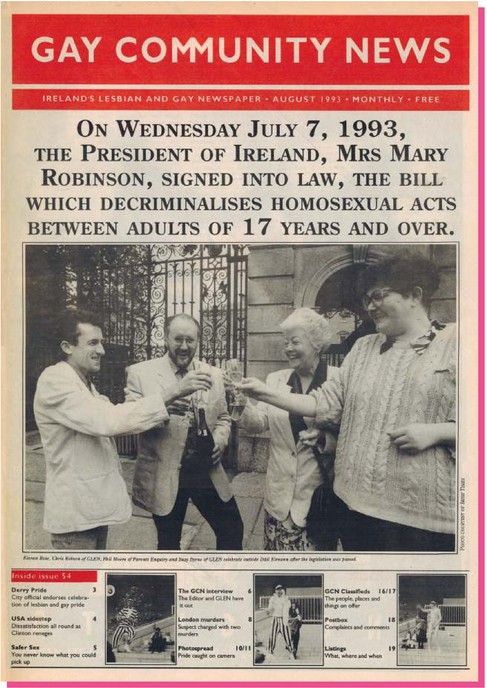The decriminalisation of homosexuality in 1993 was the end of a battle that began 16 years earlier in 1977, when David Norris introduced a case against the Irish government, saying his right to privacy was violated by the Offences against the Person Act 1861 (which criminalised “buggery”) and the Criminal Law Amendment Act 1885 (which criminalised “gross indecency”). Norris’s Senior Counsel was fellow member of the Campaign for Homosexual Law Reform, Mary Robinson. The Irish courts ruled against Norris, and so he took his case to the European Court of Human Rights, charging that Ireland’s criminalisation of homosexual acts between consenting adult men was in breach of Article 8 of the European Convention on Human Rights. The case was decided in 1988, the same year that GCN was first published, but the Irish government did not respond by changing the law for another five years.

The chief driver pushing the government towards law reform during those years was the Gay and Lesbian Equality Network. “I have often reflected on the lack of recognition Chris Robson and Kieran Rose – the real driving force behind law reform – received,” a former GLEN member told GCN in 2003. “When you look at the huge amounts of money spent on gay rights campaigns around the world and see what was achieved in Ireland with such little resources, we should be very grateful to the founders of GLEN and to those who kept going year after year to bring in the right law regarding gay sex.”